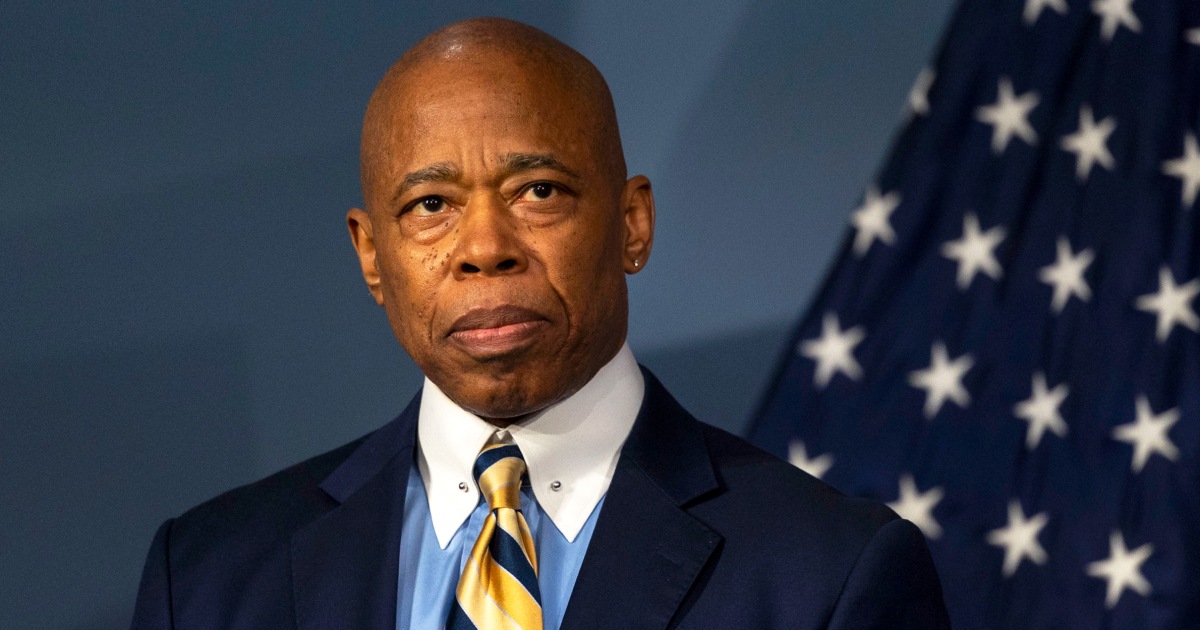Lifestyle
juanp_lastra on TikTok
I had been planning to come to this concert for over a year and I finally had the opportunity to come see most beautiful glorious woman this earth has gotten. I still can not wrap my head around the fact that I was in the same room as ADELE, sang every song with her, and she even stopped the show to defend me. I did not expected everyone in my section to be mad at me for having the time of my life and wanting to stand up and sing with her but I honestly did not care at all about what anyone was saying to me I just was in awe with the master piece I was watching with my own eyes. I did not have time for them haters. @Adele Access
#adele #weekendswithadele #lasvegas #ceasarspalace🇵🇷

Lifestyle
What to Expect From Bravo’s Nepo Baby Reality Show, ‘Next Gen NYC’

Bravo is making a big bet on the Gen Z offspring of some of the most famous stars from its “Real Housewives” franchise. The network released a trailer this week for “Next Gen NYC,” a show that will follow the lives of four young reality scions and their influencer peers as they navigate work, life and love in Manhattan.
For the reality connoisseurs among us, try to imagine “Rich Kids of Beverly Hills” meets “NYC Prep.”
For everyone else, here’s a primer.
Who’s on the show?
The cast features the offspring of four “Real Housewives”: Ariana Biermann and Riley Burruss, the daughters of the former “Real Housewives of Atlanta” stars Kim Zolciak-Biermann and Kandi Burruss; Brooks Marks, the son of the “Real Housewives of Salt Lake City” favorite Meredith Marks; and Gia Giudice, the daughter of the “Real Housewives of New Jersey” legend Teresa Giudice.
The rest of the cast is made up of a handful of influencers and so-called nepo babies, including Ava Dash, a daughter of the record executive Damon Dash and the fashion designer Rachel Roy; Emira D’Spain, a model and influencer who will be Bravo’s first full-time trans cast member; Georgia McCann, a creative strategist Bravo describes as “New York’s ultimate Gen Z It girl”; Charlie Zakkour, a crypto trader and club kid; Hudson McLeroy, Ms. Biermann’s on-again, off-again boyfriend and the heir to the fast-food chain Zaxby’s; and Shai Fruchter, an assistant at the Wall Group.
What kind of drama can be expected?
“Next Gen NYC” looks relatively restrained compared with the high-stakes drama on some of the editions of “Real Housewives.” (Legal battles! Shocking divorces! Physical altercations!) But the show has teased Ms. Dash and Ms. Biermann feuding over fashion, and Ms. Biermann cursing out Mr. Marks as Ms. Giudice deadpans, “This is so stupid.”
There’s also the drama inherent to being a young New York transplant, such as Ms. Biermann declaring she’s “absolutely petrified” riding the subway, or Ms. Burruss accidentally tossing her phone into the Hudson River.
Will there be any ‘Real Housewives’ cameos?
According to Bravo, there will be plenty — and that’s probably what they’re counting on to boost audience numbers. All of the Housewives whose children appear on the show are slated to make appearances. In the trailer, which was released this week, viewers get a glimpse into Mr. Marks’s “tumultuous work relationship” with his mother and at Ms. Zolciak-Biermann balking at a $14,000 night out. Seth Marks, the husband of Ms. Marks and father of Brooks, also factors heavily into the trailer, asking his son awkward questions about his sex life and saying he’s attached to his mother “like a little baby kangaroo.”
Will it be worth watching?
Honestly, this series feels like a deep cut. People who are not Bravo obsessives should approach with caution. But for those who can rattle off every Housewife by memory, the show premieres June 3 at 9 p.m. Eastern time on Bravo and will be available on Peacock the following day.
Lifestyle
'Shark Tank' Star Barbara Corcoran Says Trump Tariffs Will Hurt New Home Buyers

Barbara Corcoran
Trump Tariffs Bad For New Housing …
Construction Will Suffer!!!
Published
TMZ.com
Barbara Corcoran says President Trump‘s new tariffs spell bad news for folks hoping to buy a new home for an affordable price … especially those who are less advantaged.
We got the “Shark Tank” star in New York City and our photog asked her about the impact of the Trump tariffs on the real estate market, where Barbara’s a bit of an expert.

Barbara says the tariffs are jacking up prices on building materials like lumber and steel … and that means prices for homes are going up too.
She says most of the new home builds in this country are geared toward the “less advantaged,” and she says the cost increases will bring construction on these properties to a standstill … which doesn’t sound good for those folks looking to get a home for a decent price.
Barbara’s got homes in NYC and L.A., and we also asked her about the rebuilding effort in Los Angeles now that it’s been a few months since the devastating wildfires.
Check out the clip … Barbara says there’s one good thing to come out of the fires, and it’s something she’s never seen before in L.A.
Lifestyle
My Therapist Fired Me After I Confessed to a Sexual Dream About Her

I am a veteran with PTSD, depression, anxiety and marital discord. The Veterans Affairs Department has been paying for me to see a therapist. At my last session, I shared with my therapist that I’d had a sexual dream about her. I did not share any specifics about the dream, and I did not say or suggest that I have a crush on her. (I do not.)
My therapist blew up at me, saying that this is something you should not bring up to a therapist. The next day I felt so bad about the incident that I texted the therapist and apologized. I told her I was embarrassed and would never share something like that again. She did not reply.
Two days later, I received a phone call from her receptionist telling me that my therapist was terminating therapy with me.
For the record, the therapist never told me any topic was off limits. In fact, she told me that therapy was a safe place to share any issues I wanted to bring up. I remember asking her, “I can tell you anything?” and she said, “Yes, anything.”
I feel confused and abandoned. She was the only person I could share anything with and not feel judged. This is how a lot of vets feel if we share anything terrible we had done or failed to do while on active duty. I don’t think I will ever trust a therapist again.
I feel lost, alone and hurt. Can you offer any guidance?
From the Therapist:
I’m so sorry that this happened to you, because you did absolutely nothing wrong. Instead, your therapist’s wrongdoing has left you in a deeply upsetting predicament. A therapist should create a truly safe space, and it’s devastating when trust in your therapist is broken. What you’ve experienced — especially after sharing something so delicately personal — is not only hurtful but also destabilizing.
In therapy, you have every right to bring up a dream — even if it’s about your therapist and even if it’s sexual — and to trust that the therapist will handle whatever you bring into those conversations with skill, compassion and professionalism. Before I suggest how to navigate this breach, I think it might help you to understand how this disclosure should have been handled.
When people go to therapy, two dynamics typically emerge — transference and countertransference. Transference occurs when patients direct feelings related to a person in their lives onto the therapist. If, for example, you have a problematic relationship with a family member who you feel is controlling, you might transfer those feelings of being controlled onto your therapist whenever she suggests an intervention for you to try.
These feelings can range from anger to adoration, and romantic or erotic transference can occur when a therapist reminds a patient of a past romantic partner or love object, or when an earlier need is being fulfilled by the therapist: unconditional acceptance, a safe environment, emotional intimacy, or feeling seen or valued or protected. Dreams are often the subconscious mind’s way of processing complex emotions, and transference can be very useful if the therapist helps the patient identify this process as a way to gain insight into underlying feelings.
But something seems to have interfered with your therapist’s ability to do this. In training, therapists learn to recognize their own feelings of transference toward the patient — what’s known as countertransference. A therapist whose patient reminds her of her impossible-to-please mother may start to feel helpless and begin to resent this patient. Or a therapist may overidentify with a patient who struggles with a similar issue to one that the clinician dealt with in the past (divorce, an alcoholic parent), and become unable to disentangle the patient’s feelings and experiences from the therapist’s own.
As with transference, countertransference needs to be brought to light and processed. But while transference is discussed in the therapy session, therapists process their countertransference by receiving feedback from other clinicians (or their own therapists) to avoid muddying the work they’re doing to help their patients.
We have a saying in therapy: If it’s hysterical, it’s historical. Generally when people have intense reactions, there’s some history at play. It sounds as if your therapist had a strong emotional reaction to your dream but didn’t adequately explore what was underlying it. She made your dream the issue, instead of understanding her problematic feelings about your dream. In doing so, she violated the sanctity of the clinician-patient relationship by shaming and then abandoning you, causing you pain, preventing you from processing this disturbing experience and leaving you without closure or continuity of care.
Your therapist’s sudden withdrawal reinforced the very fear many veterans who are managing PTSD, depression, anxiety or trauma experience: that vulnerability leads to abandonment.
But this experience, though deeply painful, doesn’t mean that you should give up on therapy altogether. You deserve a therapist who will walk alongside you and give you room to process whatever you’ve been through, without judgment or fear of abandonment. Your therapist’s actions have rocked the foundation of your trust, but I believe you can rebuild it with the right support from a different clinician.
You can start by sharing your experience with the appropriate mental health resource coordinator, who can discuss your options on how to handle the situation with your former therapist (for instance, by filing a complaint so that other patients won’t have to endure something similar) and provide you with referrals to a new therapist who has been thoroughly vetted.
Interview two or three therapists by requesting a consultation before you begin treatment, and tell each of them what happened to you and the effect it had on you — that you are grieving the loss of the relationship you had, feel betrayed by a person you trusted, are hesitant to open up to a therapist again and are seeking someone who can help you to move forward from that experience and heal the wounds that brought you to therapy in the first place. See how each therapist responds, and notice with whom you feel most comfortable.
Finally, I want you to know that you’re not alone. Although it may feel that way right now, there are people who understand the layers of what you went through and will be there to support you.
Want to Ask the Therapist? If you have a question, email askthetherapist@nytimes.com. By submitting a query, you agree to our reader submission terms. This column is not a substitute for professional medical advice.
-

 Technology1 week ago
Technology1 week agoThe FAA hiding private jet details might not stop celebrity jet trackers
-

 News1 week ago
News1 week agoSupreme Court Rules Against Makers of Flavored Vapes Popular With Teens
-

 News1 week ago
News1 week agoNYC Mayor Eric Adams' corruption case is dismissed
-

 Technology1 week ago
Technology1 week agoHere’s how you can preorder the Nintendo Switch 2 (or try to)
-

 World1 week ago
World1 week agoWill European agriculture convert to new genomic techniques?
-

 News1 week ago
News1 week agoTrump to Pick Ohio Solicitor General, T. Elliot Gaiser, for Justice Dept. Legal Post
-

 News1 week ago
News1 week agoTrump’s ‘Liberation Day’ Tariffs Are Coming, but at a Cost to U.S. Alliances
-

 Politics1 week ago
Politics1 week agoFBI flooded with record number of new agent applications in Kash Patel's first month leading bureau

















